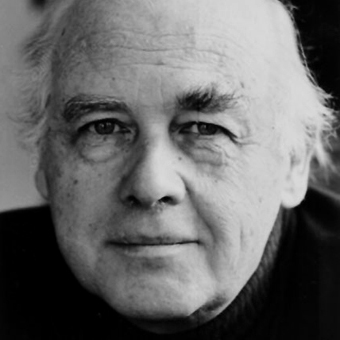
Giselher Klebe
One of the leading German exponents of literary opera *Pupil of Josef Rufer and Boris Blacher * In the fifties and sixties attracts attention with his dodecaphonic works at the Darmstadt, Donaueschingen and IGNM festivals as well as in contemporary music radio programmes * In Raskolnikows Traum (Raskolnikov's Dream, 1956) and a cantata after texts by Hans Magnus Enzensberger (Kantate, 1960), Klebe takes up critical positions on cultural issues * Increasingly reflects on musical tradition eg when a motif from Wagner's Walküre appears in his Adagio and Fugue (1962) or when a theme from Verdi is varied in his String Quartet No.2 (1965) * Giselher Klebe's harmonies are based on serial processes but do not exclude tonal chord formations * Approaches religious issues in works such as Stabat Mater (1964) * The polarities inherent in his music become obvious in his stage works * Klebe's dramatic talent is shown as early as 1957 in his first opera, Die Räuber (The Robbers), which is followed by many more operas as well as numerous ballet scores
Works by Giselher Klebe include:
Die tödlichen Wünsche (The Fatal Wishes) op.27 (1959/62) opera
Jacobowsky und der Oberst (Jakobowsky and the Colonel) op.49 (1964/65) opera
Das Testament (The Will) op.61 (1972) ballet symphony
